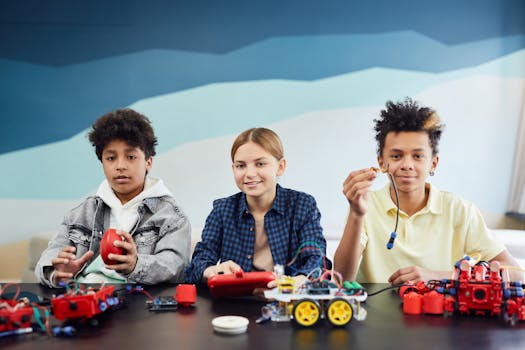
The Future of Education: What 2025 Holds
Focus Keyword: Future of Education
The future of education is an exciting and rapidly evolving field, with new technologies and innovations emerging every year. As we approach 2025, it’s essential to consider what the future holds for education and how it will impact the way we learn. In this article, we’ll explore the latest trends and predictions for the future of education, including the role of technology, personalized learning, and the skills required for success.
Section 1: The Impact of Technology on Education
Technology has revolutionized the education sector in recent years, and its impact will only continue to grow in the future. By 2025, we can expect to see even more innovative uses of technology in the classroom, including virtual and augmented reality, artificial intelligence, and blockchain. These technologies will not only enhance the learning experience but also provide new opportunities for students to engage with the material and develop essential skills.
One of the most significant advantages of technology in education is its ability to personalize the learning experience. With the help of AI and machine learning, educational software can adapt to individual students’ needs, abilities, and learning styles, providing a more effective and efficient learning experience. Additionally, online platforms and digital resources will continue to expand, offering students access to a vast array of educational materials and courses.
Section 2: The Rise of Skills-Based Education
In the future, education will focus more on developing essential skills rather than just imparting knowledge. By 2025, there will be a greater emphasis on skills such as critical thinking, creativity, collaboration, and problem-solving. These skills are essential for success in the modern workplace, where automation and AI are increasingly prevalent.
Schools and educational institutions will need to adapt their curricula to include more hands-on, project-based learning experiences that encourage students to develop these skills. Additionally, there will be a greater focus on lifelong learning, with ongoing education and professional development becoming the norm.
Section 3: The Future of the Classroom
The traditional classroom model will continue to evolve in the future, with a greater emphasis on flexibility, autonomy, and student-centered learning. By 2025, we can expect to see more innovative and dynamic learning spaces that incorporate technology, social learning, and community engagement.
The future of the classroom will also involve a shift towards more competency-based progression, where students progress through levels of proficiency rather than age-based grades. This approach will allow students to learn at their own pace, with teachers acting as facilitators and mentors rather than lecturers.
Section 4: The Role of Artificial Intelligence in Education
Artificial intelligence (AI) will play an increasingly important role in education in the future. By 2025, AI-powered tools and systems will be integrated into all aspects of education, from personalized learning platforms to intelligent tutoring systems.
AI will help teachers and educators to better understand student learning patterns, identify areas where students need extra support, and develop more effective teaching strategies. Additionally, AI-powered chatbots and virtual assistants will become more prevalent, providing students with instant support and feedback.
Section 5: Conclusion and Future Outlook
The future of education is exciting and full of possibilities. As we approach 2025, it’s clear that technology, personalized learning, and skills-based education will play a significant role in shaping the future of learning. By embracing these trends and innovations, educators and policymakers can create a more effective, efficient, and student-centered education system that prepares students for success in the modern world.